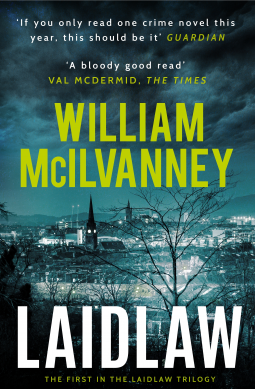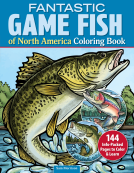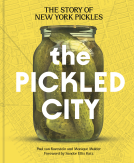
Laidlaw
by William McIlvanney
This title was previously available on NetGalley and is now archived.
Send NetGalley books directly to your Kindle or Kindle app
1
To read on a Kindle or Kindle app, please add kindle@netgalley.com as an approved email address to receive files in your Amazon account. Click here for step-by-step instructions.
2
Also find your Kindle email address within your Amazon account, and enter it here.
Pub Date Apr 02 2020 | Archive Date Apr 04 2020
Canongate | Black Thorn
Talking about this book? Use #Laidlaw #NetGalley. More hashtag tips!
Description
In the beginning there was Laidlaw . . . the CWA Silver Dagger-winning masterpiece that launched a genre, from the godfather of Scottish crime fiction
When a young woman is found brutally murdered in Kelvingrove Park, only one man stands a chance of finding her killer. Jack Laidlaw. He is a man of contrasts, ravaged by inner demons but driven by a deep compassion for the violent criminals in Glasgow’s underworld. But will Laidlaw’s unorthodox methods get him to the killer in time, when the victim’s father is baying for blood?
Acclaimed for its corrosive wit, dark themes and original maverick detective, the Laidlaw trilogy has earned the status of classic crime fiction.
Advance Praise
'He kicked the door open so the likes of Ian Rankin, Denise Mina and me could sneak through behind him'
VAL McDERMID
'The pure distilled essence of Scottish crime writing'
PETER MAY
'Fastest, first and best, Laidlaw is the melancholy heir to Marlowe. Reads like a breathless scalpel cut through the bloody heart of a city'
DENISE MINA
'It's doubtful I would be a crime writer without the influence of McIlvanney's Laidlaw'
IAN RANKIN
'A crime trilogy so searing it will burn forever into your memory. McIlvanney is the original Scottish criminal mastermind'
CHRISTOPHER BROOKMYRE
'McIlvanney is the razor king of Scottish crime writing, carving out crackling prose and pounding storylines. His Laidlaw is an enduring hero with the dry wit and insight to make other literary detectives seem two-dimensional'
GORDON FERRIS
'The Laidlaw books are not just great crime novels, they are important ones. McIlvanney proved that crime writing could have both perfect style and huge ambition. Most of us writing crime fiction today are standing on the shoulders of giants. McIlvanney is one such giant'
MARK BILLINGHAM
'If you only read one crime novel this year, this should be it'
Guardian
'In his compelling novel, LAIDLAW, McIlvanney lays bare the soul of Glasgow, capturing every nuance of its many voices'
ALEX GRAY
'William McIlvanney paints a world of harsh reality, but does so in language that is strangely beautiful and hauntingly poetic. His work defies pigeonholing in any genre: this is simply great writing from a master of his craft'
CRAIG RUSSELL
'Laidlaw is a fascinating, infuriating and memorable character . . . McIlvanney probes the nature of society and the limitations of human guilt with razor sharpness'
Scotsman
'Deeply understood people, fine descriptive writing'
The Times
'The best new character in crime fiction for years'
Daily Express
'[MacIlvanney] shows deftly and convincingly why crime fiction is the ideal place for closely-observed social realism, painting a vivid portrait of working-class Glasgow in the 1970s in the extracts from his three novels, all featuring Detective Inspector Jack Laidlaw'
The Skinny
Available Editions
| EDITION | Paperback |
| ISBN | 9781838850326 |
| PRICE | £8.99 (GBP) |
Average rating from 25 members
Featured Reviews
 Hannelore C, Reviewer
Hannelore C, Reviewer
Thank you NetGalley and Canongate for the eARC.
Set in Glasgow, (where I was in 1969 in a bar where I think Denise Mina worked!) this is a really good novel, probably the first in the wonderful Scottish noir genre. As a rabid reader of this genre I was happy to get stuck into Laidlaw and really enjoyed it. The descriptions of Glasgow were great and D.I. Jack Laidlaw, the dour, very private police detective who suffers from debilitating migraines, is a character I found fascinating. The case he's investigating involves the murder of a young woman, but the story is so much more than that. It's dark and almost claustrophobic, beautifully written and uncovers the dark underbelly of Glasgow I never saw or knew of. Definitely recommended!
"Laidlaw" was originally published the year I was born. I've heard of William McIlvanney's work over the years but assumed he was an auld duffer. How wrong was I? This novel is a masterclass in Scottish literary crime fiction. McIlvanney's prose is exquisite. His characters leap from the page. I'm stunned by his workmanship and feel an utter fool for not sampling it sooner.
This is a republication of a 1977 book, the first in the Laidlaw series and I’m not sure as a crime fiction fan how I’ve missed this series! The book starts in an intriguing way with a ‘monsters’ journey through Glasgow. Later on a body of a young female is found in Kelvingrove Park which DI Laidlaw and DC Harkness investigate. This story is told from several perspectives including Laidlaw and
There’s a lot to like in this book. The plot is engrossing and intriguing, it’s well written in a style as gritty as the city. Laidlaw is likeable and fascinating. He’s bleak, abrasive and a paradox of a man and not easy to live with as his wife Ena will attest. I really like his brand of philosophy which is his own and therefore unique! Harkness is a good character too and the pair develop a bond based on insults. There are some excellent analogies in the storytelling and some very good descriptions. There are nice touches of wry humour which provides a contrast to the bleak story and to some of the harshest characters and there’s very realistic and colourful dialogue between them. The book build well to a dramatic conclusion.
Glasgow provides a great atmospheric backdrop and the city reveals itself vividly through the storytelling and the ‘Weegie’ ’ dialect. It shows a deep religious divide demonstrated clearly through allegiance to the city’s football teams. A lot of the Glaswegian men in the story are very domineering and the women cowed which is more a reflection of the time of the books first publication than today.
The only negative is that readers will need to know something about the late 70’s or some references will be meaningless. For example, with no disrespect to David Essex but you won’t find girls bedroom walls decorated with his face in 2020!
Overall, I loved it. It’s twisty with really good characters and a believable plot. I’ll definitely want to read more about Laidlaw.
Many thank to NetGalley and Black Thorn.
 Ciaran S, Reviewer
Ciaran S, Reviewer
I’ve been aware of McIlvanney for years, but never found my way to trying him - this reissue of Laidlaw was a great opportunity to break my duck, and i am SO pleased that i’ve been able to take it. Laidlaw is in a way rather cliched, but only because everyone else has stolen from it since. What’s most startling is actually how modern the language feels, which is in direct contrast to the 70s setting, the language used by the characters, and the at times stereotypical gay characters and latent homophobia from the majority of the police (this may not have changed as much as it needs, some would argue)..
There’s a complexity to the language used - sometimes excessively flowery, sometimes wonderfully evocative. The lack of a whodunnit will deter some - it’s clear from the off who is responsible and that’s not the point. The journey is all important, and that has a propulsive momentum that sees you through to the end.
I understand this is the first part of a trilogy - i look forward to reading the next reissues.
 Ruth D, Reviewer
Ruth D, Reviewer
Laidlaw is a different type of detective, he is Scottish and damaged. I found the style of writing quite difficult, but this did not take away from the story.
 Gordon J, Reviewer
Gordon J, Reviewer
What a character William Mcllvanney has created in Laidlaw, do you like him? Do you even understand him? Maybe neither but you are left in no doubt who the main man is in Glasgow. With true grit realistic thoughts on old time Glasgow and its dark side of life this is well written and the broad accent language is not a hinderance but a definite enhancement of the story. No its not all action thriller but it is still thrilling. Full of characters that would be welcome in any book with surprising metaphors bringing them to life it reads at times like a Dickens character being described, pure joy and light relief
 Joseph C, Reviewer
Joseph C, Reviewer
In 1966, Scottish novelist, poet and essayist William McIlvanney (1936-2015) won the Geoffrey Faber Memorial Prize for his debut novel Remedy is None. In 1975, he won the Whitbread Novel Award for Docherty, a gritty piece of historical fiction about a Scottish mining family in the early 20th Century. Having thus been anointed as a “literary” writer, the publication of crime novel Laidlaw in 1977 came as a surprise, if not a shock. What was McIlvanney doing, putting his literary credentials at risk by writing a detective novel? Laidlaw would be followed by two other instalments in a trilogy featuring the eponymous Glasgow detective, establishing his creator (with the benefit of hindsight) as the father of “tartan noir”, an ongoing inspiration for the likes of Ian Rankin and Val McDermid. The reaction to the publication of the novel in the 1970s, however, shows that a certain suspicion towards “genre fiction” has long been an unsavoury aspect of the literary world. Reading Laidlaw, on the other hand, proves that why this snobbery is completely off the mark.
At face value, the novel is a tribute to both the American “hardboiled” genre and to Continental fiction (a là Simenon), with which it shares several recognisable tropes. A young woman is sexually assaulted and brutally murdered in Glasgow and D.I. Jack Laidlaw is assigned to the case. Laidlaw, who keeps “Kierkegaard, Camus and Unamuno” hidden in a drawer in his desk “like caches of alcohol”, is an eccentric figure with unusual investigative methods, “a potentially violent man who hates violence”. When constable Harkness is asked by his superiors to partner up with Laidlaw, he is expected not just to help the older detective but also to report on him and keep his wilder behaviour in check. The case leads the duo through the seedy underbelly of Glasgow, where Laidlaw enjoys the grudging respect of dubious figures. But the “polis” are not the only once seeking the murderer. The relatives of the victim are looking for him to avenge her death, whilst criminals associated with him want him out of the way because of the unwelcome attention the crime has brought to their activities. The investigation turns into a race against time, with the murderer in danger of becoming the new victim.
Despite its nods to the genre, McIlvanney brings to this novel some idiosyncratic twists. One of them is the setting – no longer an American metropolis, or London (another “capital” of crime fiction) but 1970s Glasgow with which Laidlaw (and possibly, his creator) seems to have a love-hate relationship. The Glaswegian backdrop is evoked not only through the descriptions within the novel, but also through the judicious use of dialect.
Then there’s the plot. Unlike your typical whodunnit, the murderer is revealed quite early on, as is his motive. The reader’s pleasure does not derive from the unmasking of the perpetrator but, rather, from learning how Laidlaw will get to his man and from a curiosity as to whether others will get to the ‘prey’ before he does. This is as much of a thriller as a “detective” novel.
Laidlaw also gives McIlvanney the opportunity to explore the same socialist themes which underlie his other “non-crime” work. The conversations between the inspector and an increasingly respectful Harkness give voice to pithy social commentary which lays bare the bigotry (whether fuelled by class, religion or other factors) within the world McIlvanney portrays.
What gives Laidlaw is peculiar style, however, is its use of language – the unlikely, yet arresting, images which pepper the text. The victim’s father has a face which looks “like an argument you couldn’t win”. The police mortuary is “the tradesmen’s entrance to the Court”, where “the raw materials of justice” are delivered, “corpses that are precipitates of strange experience, alloys of fear and hate and anger and love and viciousness and bewilderment, that the Court will take and refine into comprehension”. Laidlaw is sickened when he realises that “the first law is real estate, and people are its property”. This is crime fiction, but it is also poetry.
 Tim D, Reviewer
Tim D, Reviewer
I would like to thank William McIlvanney, Canongate and NetGalley for a copy of this book and a chance to review Laidlaw.
This is a republication of the first book in the Jack Laidlaw series. Its great crime fiction set in Glasgow in the 1970s it is dark with Laidlaw using unorthodox methods to solve the crime. I read this on holidays, it’s a good read and I will read the following two books in the series. Definitely recommend to lovers of crime fiction.
Readers who liked this book also liked:
Silvia Moreno-Garcia
Historical Fiction, Literary Fiction, Sci Fi & Fantasy
Rachel Joyce
Historical Fiction, Literary Fiction, Women's Fiction
Brian Soonho Yoon
Children's Nonfiction, Crafts & Hobbies
Sam Morrison
Children's Nonfiction, Crafts & Hobbies, Outdoors & Nature


















